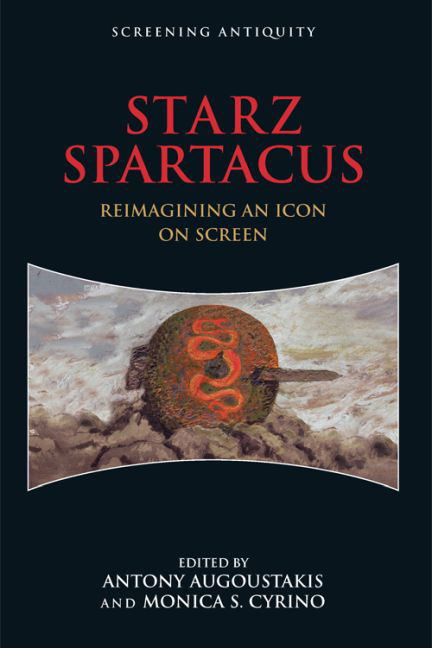Book contents
- Frontmatter
- Contents
- Series Editors' Preface
- Editors' Acknowledgments
- Contributors
- List of Illustrations
- Episode Listing
- Introduction: Reimagining a New Spartacus
- PART I HEROES AND HEROISM
- PART II SOCIAL SPACES
- PART III GENDER AND SEXUALITY
- 8 The Rape of Lucretia
- 9 The Others
- 10 Fan Reactions to Nagron as One True Pairing
- PART IV SPECTACLE AND VIOLENCE
- Filmography
- Bibliography
- Index
9 - The Others
from PART III - GENDER AND SEXUALITY
Published online by Cambridge University Press: 27 April 2017
- Frontmatter
- Contents
- Series Editors' Preface
- Editors' Acknowledgments
- Contributors
- List of Illustrations
- Episode Listing
- Introduction: Reimagining a New Spartacus
- PART I HEROES AND HEROISM
- PART II SOCIAL SPACES
- PART III GENDER AND SEXUALITY
- 8 The Rape of Lucretia
- 9 The Others
- 10 Fan Reactions to Nagron as One True Pairing
- PART IV SPECTACLE AND VIOLENCE
- Filmography
- Bibliography
- Index
Summary
The indisputable success of the acclaimed STARZ Spartacus show can be attributed to its wide appeal to twenty-first-century viewers. Certainly the show does not avoid topics that have traditionally been difficult to treat both on the big and small screens, such as rape, pornography, and homosexuality. Closely related to the show's forthright interest in bringing ancient Rome closer to modern life is its treatment of what we would call today “second-class” citizens, namely the gladiators or the male and female slaves in the house and the ludus of Batiatus: we might call them the others, those figures who are normally given very little or no voice in our sources on ancient life, society, and civilization. This chapter discusses in particular how we perceive and understand the role of the non-elite women in Spartacus, and how much modern scholarship and criticism on gender in classical antiquity informs our understanding of gender, love, sexuality, familial relationships, and marriage in the ancient world, whether accurately or approximately depicted on the small screen.
Important studies on the role of Roman and especially non-Roman women have shed light on the fluidity of the concept of the other in the ancient world, but how do cinematographers and producers imagine the role of the female in the ancient world? In reconstructing the past, what are the traits with which they endow women in order to offer a final product aesthetically and commercially pleasing to modern audiences? Building on and continuing earlier discussions of the depiction of Roman and non-Roman women and ethnic minorities on the small screen, this chapter examines several of the secondary female characters in Spartacus, such as Kore, Crassus’ slave, who is endowed with Spartacus-like features in the final crucifixion scene, or Mira, Spartacus’ companion, who dies in an effort to save him; but also the Amazon-type women, such as Naevia, Crixus’ lover, who is a warrior and heroine to the very last battle of the rebellion. As I shall point out, the show ends with a powerful message of hope, but the carriers of this hope are not the Romans: Crassus is overshadowed by Pompey who steals Crassus’ thunder at the end and claims the victory over the rebels as his own crowning achievement. It is the others, the survivors of the battle – such as the gay couple Agron and Nasir – who carry on Spartacus’ message of freedom.
- Type
- Chapter
- Information
- STARZ SpartacusReimagining an Icon on Screen, pp. 148 - 160Publisher: Edinburgh University PressPrint publication year: 2017



